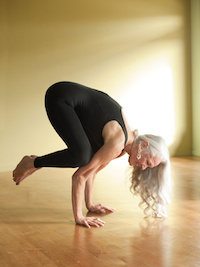 Exercise. Some people love it and some people hate it, some people see it as necessary in their lives, and others wouldn’t go near it. So what really is the truth about exercise as we age? Should we do it and do we really need to do it? What are the benefits of exercise and how can we do it in a way that’s safe and enjoyable? This is what we are going to look at in this and next month’s edition of our Active+ Grown Ups blog.
Exercise. Some people love it and some people hate it, some people see it as necessary in their lives, and others wouldn’t go near it. So what really is the truth about exercise as we age? Should we do it and do we really need to do it? What are the benefits of exercise and how can we do it in a way that’s safe and enjoyable? This is what we are going to look at in this and next month’s edition of our Active+ Grown Ups blog.
If I were to ask you what are the most common physical and medical problems that occur as we age, I bet you would come up with a list that included things like weight gain, decreased strength, decreased mobility, and joint pain. Then there are the obvious medical problems such as high blood pressure and diabetes, and of course the serious ones like risk for heart attack, stroke, and various forms of cancer. These problems are common to develop as we age, and often require the use of prescribed medication to control, which in themselves can cause unwelcome side-effects.
Exercise and its relationship to general health is one of the most understood and well-researched subjects in the health sciences. The evidence is overwhelming in concluding that regular and age appropriate exercise will decrease weight, increase strength and increase overall mobility and potentially decrease joint pain. Diabetes can be controlled with exercise alone in some instances. Risk factors for stroke and heart attack can be dramatically decreased as well as for some forms of cancer. As these risk factors decrease, then the need for medication can decrease, which potentially will limit side-effects and thus improve health.
Another area where exercise is really beneficial, is in helping with stress and mental health in general. Two of the most common forms of mental illness are anxiety and depression. Exercise can help anxiety and depression by causing the body to release positive chemicals (hormones) that affect our mood, and by limiting other chemicals that can worsen depression and mood. Exercise can also promote relaxation (once completed!), which again is really beneficial for mental health. The fact that you are taking control of your body when you exercise and are doing something positive is great for elevating mood and lifting confidence.
So you can see from the above that there are many reasons why exercise is essential as we get older. Yet in spite of these great reasons lots of people still find it difficult to get going with their exercise. If the do get going, they often struggle to maintain it. There are many reasons why this is, however a lot of it is around the type of exercise that people engage in, the expectations that they have regarding hoped-for changes in their body, and how hard it is. I believe that there are simple guidelines that we can follow to make exercise fun, challenging, and sustainable in the long term.









Join the Discussion
Type out your comment here:
You must be logged in to post a comment.